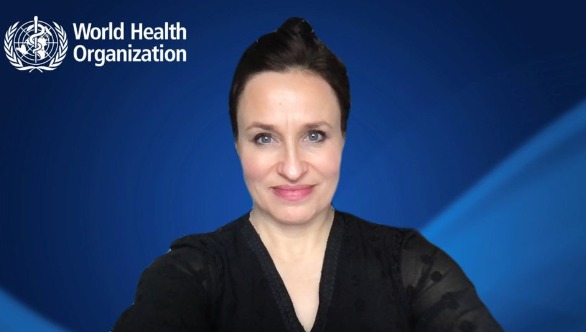We spoke to Heini Utunen, of WHE’s Learning and Capacity Development Unit, about learning in the Health Emergencies Programme and their experience of the HPass certification process.

Going through the certification process provided us with an opportunity to gather and re-examine the processes we have developed over a number of years to provide high-quality learning. This will help us to formalize our approach and share it with others who are engaged in learning. As a team it was reassuring to have our approach to the development and delivery of learning recognized and certified.
Tell us a bit about learning in the Health Emergencies Programme of the WHO?
The WHO’s guiding principle is that all people should enjoy the highest standard of health, regardless of race, religion, political belief, economic or social condition. Learning in the Health Emergencies Programme strengthens our work to protect the health of people across the world by supporting countries as they prepare for and respond to emergencies with public health consequences. Delivering these goals requires a huge global workforce, and learning in the Health Emergencies Programme meets the training and learning requirements of WHO partners and member states, as well as civil society and volunteers. An indication of the scale of this undertaking, is that we are equipping a workforce to ensure that 1 billion people are better protected from health emergencies at global, country and regional levels.
What does being an HPass Certified Learning Provider mean to you?
It was great to be recognised for the quality of the systems and processes we have in place to develop, deliver and evaluate our learning. In particular, the reviewer commented that “The courses are of high-quality design and delivered using appropriate and accessible modalities. The courses are informative and relevant to the needs of people working or interested in the humanitarian health care sector. The courses are world-leading, modern and up to date.” Most importantly I hope that this certification gives added reassurance to learners, stakeholders and partners that within WHE we are able to provide learning that is relevant and of high quality to our staff and colleagues in ministries of health around the world.
We were also delighted that a number of areas of good practice were pulled out in the report, for example our assessments, described as ‘fair, efficient and effective’. Our communications with learners on our OpenWHO.org learning platform, which provides free courses on 190 public health topics to anyone interested, were highlighted as well: “OpenWHO communications are to an exceedingly high standard. They are engaging, clear and informative. Great attention is given to accessibility.” We were also praised for our thorough approach to monitoring and evaluation.
Did you learn anything through the certification process which caused you to alter your approach or systems in any way?
Going through the certification process provided us with an opportunity to gather and re-examine the processes we have developed over a number of years to provide high-quality learning. This will help us to formalize our approach and share it with others who are engaged in learning. As a team it was reassuring to have our approach to the development and delivery of learning recognized and certified.
What are your main objectives for learning in the Health Emergencies Programme in 2023?
We remain committed to providing high-quality learning that is accessible anywhere in the world. To that end we are continuing to refine and develop how we use technology to deliver learning; we will continue to work with our colleagues in the WHO regions on our leadership in emergencies courses and start work on new learning for the management of emergency response.
Featured Badges
xxx
xxx



